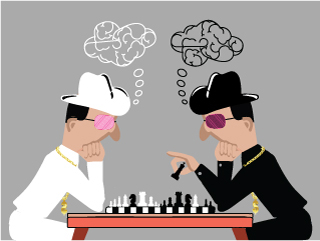Game Theory Corner at Norway Chess
Hello Chess Enthusiasts Worldwide,
We are pleased to share with you a new addition to our coverage of the upcoming Norway Chess Tournament —the Game Theory Corner! This initiative aims to supplement your tournament experience with a blend of traditional chess analytics and insights from game theory, offering an extra dimension to analyzing games.
At the end of each round, we’ll be sharing a detailed summary of the games, featuring our new Game Intelligence score among other statistics. This measure dynamically analyzes the interplay between human-optimal and engine-optimal moves throughout each game, providing updates in real-time.
Traditional metrics like “average centipawn loss” have been invaluable in assessing the precision of play. Game Intelligence provides an additional perspective. It considers the potential rewards from moves that may be seen as optimal from a human perspective, and incorporates the unique scoring mechanism of Norway Chess, providing a broader view than just the optimal moves according to the engine. Consequently, it provides a live, evolving insight into the intriguing balance between human intuition and engine precision.
However, it’s important to remember that no measure of intelligence, whether related to human or machine, is perfect or definitive. Game Intelligence is simply an additional tool in our analytical repertoire. We hope that this new metric, without overshadowing other established tools, will contribute to the vibrant and ever-evolving conversation within the chess world.
We are also pleased to announce that Mehmet Ismail will be available throughout the tournament to answer any questions you may have about the statistics we display. Furthermore, he will be thrilled to engage in deeper discussions about the game theoretical properties of various chess statistics and metrics, providing a unique opportunity to explore the fascinating relationship between chess and game theory. Interestingly, the origins of game theory are deeply intertwined with chess. Emmanuel Lasker, a legendary figure in chess history, made some of the initial efforts towards a general theory of games, highlighted in his insightful book, Struggle.
We are committed to making this experience as valuable to you as possible. So, if you have any suggestions for additional chess statistics or features you’d like to see during the Norway Chess tournament, please don’t hesitate to reach out to us at https://twitter.com/NorwayChess or [email protected].
We hope that the addition of game theory to our chess analysis will offer you a new perspective and further enhance your appreciation for the strategic depth of chess.
We invite you to join us at the Game Theory Corner during the upcoming Norway Chess Tournament. We look forward to sharing this new experience with you!

Image by MIT OpenCourseWare